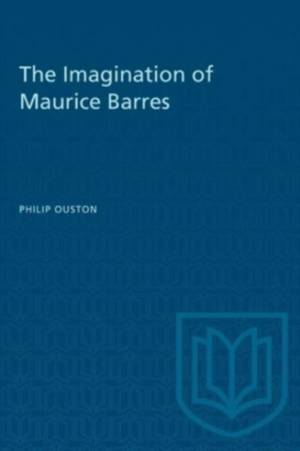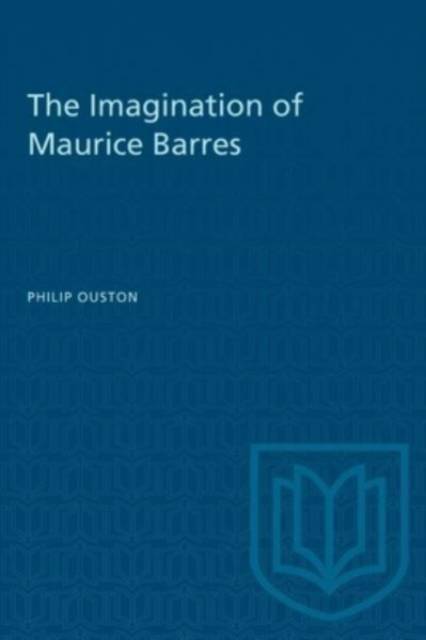
- Afhalen na 1 uur in een winkel met voorraad
- Gratis thuislevering in België vanaf € 30
- Ruim aanbod met 7 miljoen producten
- Afhalen na 1 uur in een winkel met voorraad
- Gratis thuislevering in België vanaf € 30
- Ruim aanbod met 7 miljoen producten
Zoeken
Omschrijving
The power of imagination to construct those mythos which alone, according to Barres, give sense and value to our absurd existence and by which, above all, men are moved to believe and act, was at the centre of his life-long preoccupation with the art of arousing and directing spiritual energy in individuals and groups. This preoccupation appears in every context of his varied career--as novelist, essayist, journalist, orator, self-conscious Egotist, Romantic traveller, anti-Dreyfusard, religious syncretist and pragmatist, and, with Charles Maurras, one of the most influential founders and exponents of modern French nationalism. His great originality among French political writers of the twentieth century is to have consciously applied Baudelaire's 'Queen of Faculties' and the insights of post-Baudelairian Symbolism to the enterprise of committed literature, using a 'picturesque and musical' language of persuasion, 'without logic-chopping, syllogisms and deductions, ' such as Baudelaire had first defined in 'Le Confiteor de l'artiste.'
Philip Ouston's book traces the development of Barres's ideas concerning the observed 'energetic' and 'constructive' functions of mytho-poetic imagination in the lives of individuals and the government of societies, investigates the techniques of persuasion and figures of rhetoric he evolved for the purpose of maintaining or reawakening the political and religious imagination of his contemporaries, and describes his own imagined world of private and public symbols from Le Culte du Moi to Le Mystere en pleine lumiere. It will revive interest in Barres and answer questions about the nature of imagination and particular modes of imagining--topics that have long been the concern of the New Criticism in North American and France.
Philip Ouston's book traces the development of Barres's ideas concerning the observed 'energetic' and 'constructive' functions of mytho-poetic imagination in the lives of individuals and the government of societies, investigates the techniques of persuasion and figures of rhetoric he evolved for the purpose of maintaining or reawakening the political and religious imagination of his contemporaries, and describes his own imagined world of private and public symbols from Le Culte du Moi to Le Mystere en pleine lumiere. It will revive interest in Barres and answer questions about the nature of imagination and particular modes of imagining--topics that have long been the concern of the New Criticism in North American and France.
Specificaties
Betrokkenen
- Auteur(s):
- Uitgeverij:
Inhoud
- Aantal bladzijden:
- 334
- Taal:
- Engels
- Reeks:
Eigenschappen
- Productcode (EAN):
- 9781487579043
- Verschijningsdatum:
- 15/12/1974
- Uitvoering:
- Paperback
- Formaat:
- Trade paperback (VS)
- Afmetingen:
- 156 mm x 234 mm
- Gewicht:
- 471 g

Alleen bij Standaard Boekhandel
+ 151 punten op je klantenkaart van Standaard Boekhandel
Beoordelingen
We publiceren alleen reviews die voldoen aan de voorwaarden voor reviews. Bekijk onze voorwaarden voor reviews.







